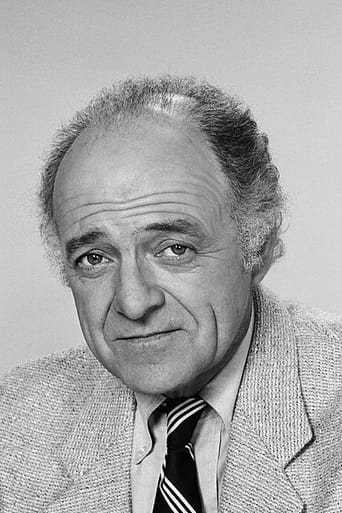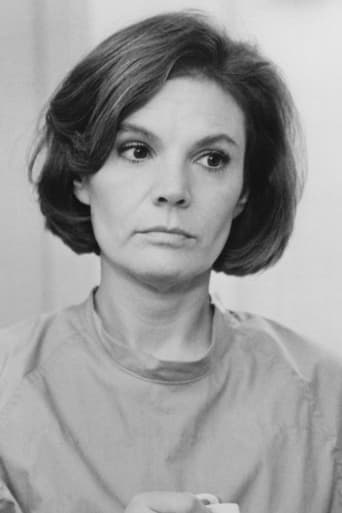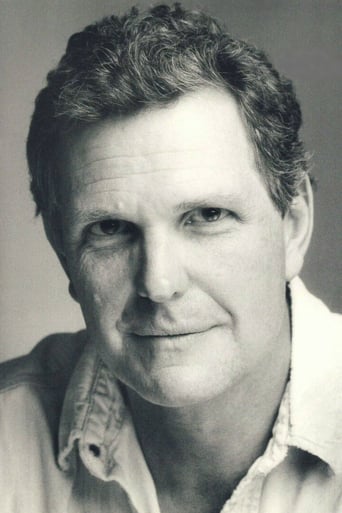Platicsco
Good story, Not enough for a whole film
Grimossfer
Clever and entertaining enough to recommend even to members of the 1%
Freeman
This film is so real. It treats its characters with so much care and sensitivity.
Steve Nyland (Squonkamatic)
I have now seen this ingenious made for TV movie twice: Upon original broadcast and again last night via the marvel of the internet. In 1983 I was a high school sophomore who watched in thunderstruck awe as a dark fantasy of nuclear hell played out as vividly as it had in the music of the era which captivated me. Here at last was a suitable pop culture document of how senseless it all was, with even the well-intentioned terrorist/activists being as dead wrong as the suicidal federal policies they were trying to put a stop to. It scared the living crap out of me to say the least, ringing with authenticity and dead cold delivery. The few moments where the script tries to become pat and predictable are all undermined by the activities of the players. Normality is set aside.Upon second viewing now as a jaded adult approaching fifty some of the seams in the weave are evident. We've grown up in an era of 24hr cable news programming with one on the spot disaster coverage after another. The mother of all being coverage of the September 11th attacks, as riveting a 36 hours of nonstop news viewing endurance as I can recall. Then there's all those plane crashes, space shuttle disasters, hostage dramas, reality TV law enforcement shows, and the Ferguson riots, which were streamed live from people's smart phones. You can now pretty much cut out the middleman of the broadcast journalist and watch events unfold live via those who are there.So there's sort of a chicken-egg thing going on here: Which came first? The cinema-verity docudrama approach of speculative fiction, or the tradition of Americans tuning in on their TV sets to watch events of horror or spectacle happen before our eyes? Which was one of the aspects which made that 1983 viewing so unforgettable — The story *happened* to the viewer and could not be stopped or paused or Tivo'd to watch it later. You had to be tuned in and paying attention, and I am struggling now to recall how or even if I knew specifically to watch. It certainly would have been a priority viewing experience if told about it. I was a young suburban punk being prepared for the coming apocalypse by the music of The Clash, British Ska bands, artist/experimenters like Eno and King Crimson, and watched Carl Sagan's COSMOS religiously. It's fatalistic anti-nuclear theme was pure and rational enough to be convincing even without "Ivan Meets G.I. Joe". We were doomed as far as I was concerned. Just a matter of circumstance and POOF. There goes 6.5 billion years of evolution.None of what "Special Bulletin" depicts stretched outside the realm of what we thought was possible in 1983, and there wasn't opportunity to stop the proceedings during events to check IMDb or other resources (which didn't exist at the time) to try and make sense of what the hell was going on. You sort of have to surrender yourself to the passage of events shown, which was easier 32 years ago than it is now. Viewing with a 2015 sensibility the authenticity of certain moments suffer, specifically the final shootout where a live feed camera is allowed to capture the initial moments of the assault. First thing Delta would have done was get the goddamn cameras out of there, but then again this is as much a fantasy about the news media's irresponsible nature as it was about the nuclear incident. In such fantasies plausibility will be the first thing to go out the window.So scratch watching this for an authentic demonstration of how such an event could unfold. Watch it instead for the performances, all of which are pretty much dead on, David Clennon being especially convincing as the leader of the group. It is the staging of the interplay between the media personalities which dominate the proceedings being the main shortcoming for contemporary audiences. Or rather, subsequent experience with such broadcast events have rendered the approach taken by the writers as being naive. It's never that simple, and indeed the broadcast's finest moments are when events spiral out of control and leave the commentators bereft of anything to say. Because there is nothing to say at such times, and the best thing they could do was shut the hell up. At least they got that right.
Theo Robertson
I caught this circa 1987 on TV late one night . It's a docu-drama / spoof American news featuring a bunch of terrorists making demands on a tug boat and if they're not met they'll be detonating an atomic bomb they're conveniently carrying about . Getting killed by a giant mushroom cloud wasn't a common event in the 1980s but , the fear of dying in a nuclear explosion was a very real one however . It should also be remembered that whilst terrorism was happening across the world like Northern Ireland for example terrorist attacks on American soil was totally unknown . How times change And that's the problem with SPECIAL BULLETIN - both the world and media have changed meaning this speculative drama appears very dated . Even in the late 1980s here in Britain you could only catch the news at certain times of the day - uninterrupted 24 hour news as it happens would be unknown over here . It's different now of course because we can see wars from the front line in real time and see thousands of people die as buildings collapse in New York It's impossible not to be reminded of the real life events of 9/11 and this is what hurts SPECIAL BULLETIN - everything is a bit too forced and overly dramatic as hardened TV news reporters , gasp , sigh and emote in a not totally convincing manner as if they're actors who have read the ending of the script which they no doubt have . Compare this with drama with the real life reactions seen by news anchors on 9/11 who have a slighted shocked mannerism which gives the impression of bland detachment . In some ways real life doesn't match the physical drama of fiction Like so many of the people here I do remember this drama from its broadcast in the 1980s . Having an atomic bomb explode in North Carolina killing two thousand people seemed a little far fetched . The events of 9/11 showed that nothing is beyond terrorists . One thing that did come out after 9/11 is that the myth of terrorists getting their hands on some plutonium and making a home made nuclear device is exactly that - a myth , you'd need a state owned technological industry to make such a device so something like SPECIAL BULLETIN is an interesting oddity from a time of nuclear fears and paranoia
mixman_2007
It's now 2007 and I'm still impressed by this 1983 super movie! It was on Dutch television, I recorded it then and watched it for so many times. The dutch title is: Hier volgt een extra bericht. Please, can this movie be on television every four years? The makers deserve that! This is very good scenario-writing and acting. An example for everybody how to choose a theme for a movie and how to puzzle it out...it's ahead of it's time. I was so glad that there were still filmmakers with fresh ideas, who could wake up the public from their long sleep. The Dutch television made a bar in the upper end of the screen, because you think as a viewer, that it's all real happening now....like breaking news...so realistic. This movie and makers may not be forgotten!! Watch it!
mpoconnor7
I think Special Bulletin has to rank amongst the half dozen finest made for TV movies of all time; this movie won several Emmy awards in 1983. This movie was years ahead of its time in showing how the media would handle a live breaking story, including catchy graphics and theme music, and lots of experts giving their opinions as the crisis unfolds. It was clearly inspired by Orson Welles' 1938 War of the Worlds radio broadcast, and NBC had to run disclaimers to let people know that this was a realistic depiction of a fictional event.A group of disgruntled American nuclear scientists build their own nuclear device and tow it into Charleston, SC, Harbor on a tugboat. Their motive was to get the US Government to dismantle all the nuclear weapons in all the military bases and ships in the Charleston area, hundreds of missiles in all. In a gunfight with the authorities, the terrorists kidnapped a reporter and cameraman who were covering the gunfight and got a little too close to the action. With threats of killing the journalists, the terrorists are able to get their message across on live TV and we the viewers are suddenly inside the tugboat watching the events inside the boat unfold as well as seeing the news network covering the story in a way that has become familiar in this era of instant 24/7 news.This movie makes a sly condemnation of TV news in general in the way live breaking news is covered and sensationalized, some would say over-sensationalized. I highly recommend this movie.





